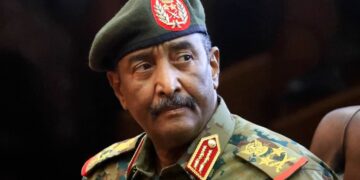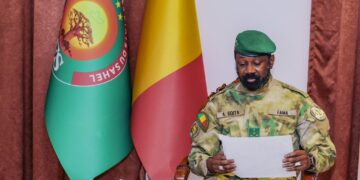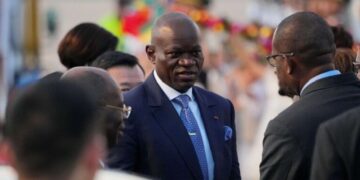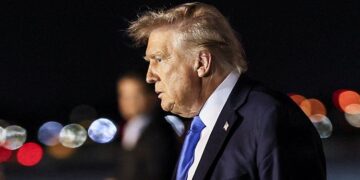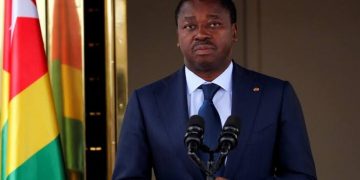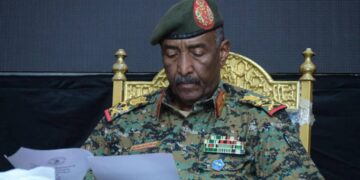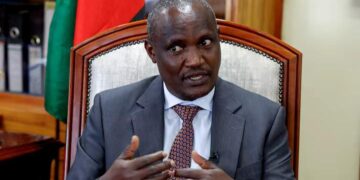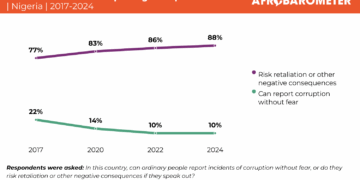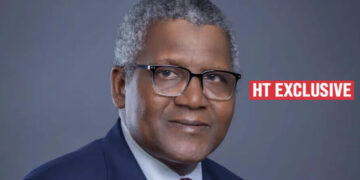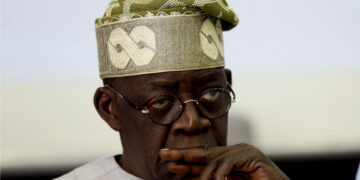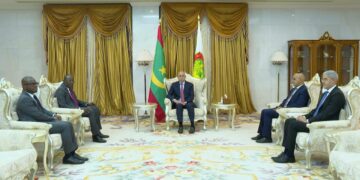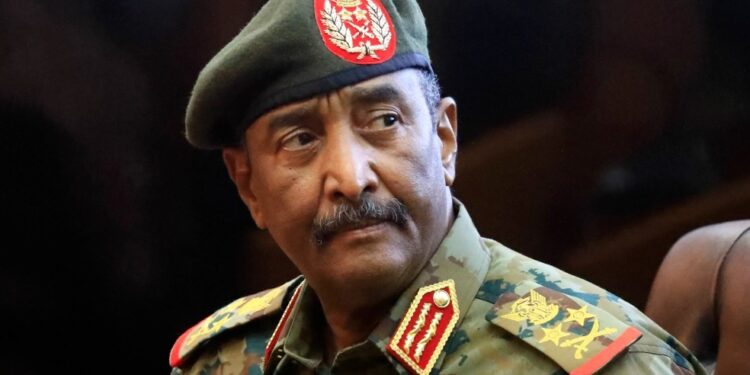The United States has imposed sanctions on Sudan’s military leader, General Abdel Fattah al-Burhan, who leads one of the factions in Sudan’s devastating 21-month civil war.
The conflict has claimed countless lives, displaced over 12 million people, and plunged the nation into a severe humanitarian crisis.
In its statement, the US Treasury Department accused Gen Burhan of “destabilising Sudan and undermining the goal of a democratic transition.”
The announcement came amid reports of civilian casualties in Wad Madani, although these incidents were not directly referenced in the US release.
Sudan’s foreign ministry criticised the move, calling the sanctions “strange and troubling.” This action follows similar measures taken last week against Mohamed Hamdan Dagalo, leader of the paramilitary Rapid Support Forces (RSF).
Washington has accused Dagalo’s group of committing acts of genocide during the ongoing conflict.
The Treasury Department stated that the Sudanese army, under Burhan’s command, has carried out deadly attacks targeting civilians and key infrastructure, including schools, hospitals, and markets.
It also alleged that the military deliberately blocks humanitarian aid and uses starvation as a weapon of war.
The sanctions freeze any US-based assets linked to Burhan and prohibit financial transactions with him. While humanitarian exemptions were included, aid groups fear the military might respond by further restricting relief efforts.
Earlier in the war, US Secretary of State Antony Blinken accused the Sudanese army of committing war crimes. In light of these ongoing allegations, Burhan announced a probe into claims that his forces committed atrocities after recapturing the capital of Gezira state from the RSF.
There are also concerns about civilian deaths, including those of foreign nationals, following the military’s recent operations in Wad Madani. South Sudan has formally protested, summoning Sudan’s ambassador and condemning the loss of its citizens in the violence.
Strategically located 140km (87 miles) south of Khartoum, Wad Madani serves as a vital junction connecting key supply routes across several states. The city, under RSF control for a year, was retaken by the army on Saturday.
Meanwhile, reports from human rights groups allege that military forces killed at least 13 civilians in Camp Taiba, a village near Wad Madani. UN humanitarian chief in Sudan, Clementine Nkweta-Salami, expressed grave concern over these reports, which suggest targeted attacks based on ethnicity or suspected affiliations.
US Special Envoy for Sudan, Tom Perriello, called the allegations “appalling” and urged accountability from all factions involved in the conflict. In response, Burhan has created a committee to investigate the Camp Taiba killings, with a report expected within a week. However, he has not yet addressed concerns raised by South Sudan or other incidents reported in Gezira.
South Sudan’s foreign ministry stated that its embassy in Sudan provided detailed accounts of the violence, describing the killings of innocent civilians uninvolved in the conflict. The Sudanese military has previously accused the RSF of employing South Sudanese mercenaries to bolster its ranks.
Graphic videos shared on social media have amplified outrage. One widely circulated clip, verified by the BBC, shows a man in civilian clothing being thrown from Hantoub Bridge into the Blue Nile before being shot. The footage has been confirmed to match the bridge’s location, including its railings and distinct markings.
Another video shows around 30 bodies of men in civilian clothing laid out near a wall. BBC analysis identified the location as north-west of Wad Madani, near the site of an alleged military ambush on RSF fighters. The cause of death remains unclear, and the affiliations of the deceased are unknown, as armed fighters often do not wear uniforms.
Additional footage depicts scenes of fierce gunfire and the aftermath of the ambush. The Sudanese army has acknowledged “individual violations” in parts of Gezira state and pledged to hold perpetrators accountable. However, the RSF has also faced accusations of retaliatory violence, particularly after the defection of a key commander, Abu Aqla Kaikal, in October.
Kaikal played a pivotal role in helping the army regain control of Wad Madani, further escalating tensions in the area and intensifying the broader conflict.
